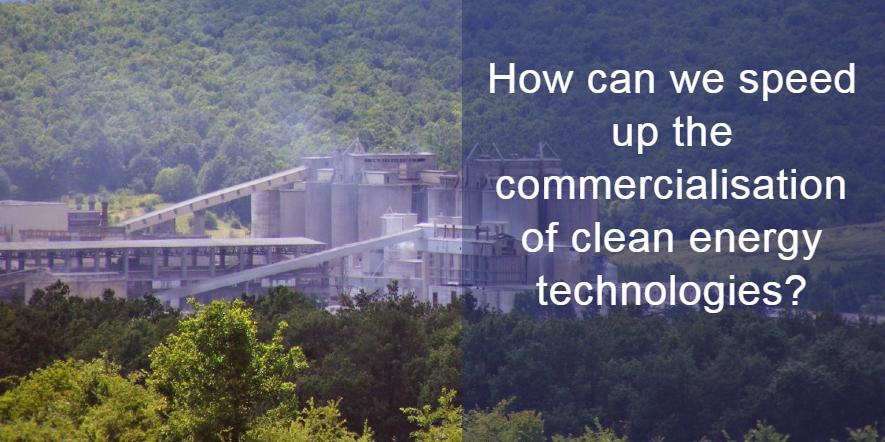
A new donation from Quadrature Climate Foundation (QCF) will support research at the University of Cambridge and the University of California, Berkeley, on designing public institutions best suited to bringing clean energy technologies to market.
Despite global efforts to mitigate climate change by decarbonisation, many industrial sectors such as cement, steel, chemicals, aviation and shipping lag behind in emissions reduction due to a lack of commercially viable and ready-to-implement clean energy technologies. Potential solutions in the form of technologies and business models often exist at the prototype or demonstration phase, but need further research and development, demonstration, and early manufacturing or deployment as they move from lab to market.
If we are to meet Paris climate goals for reaching net-zero carbon emissions, these emerging technologies must be commercialised at a much faster pace than their predecessors. This raises the question of whether our current public commercialisation institutions (agencies, entities, or programmes—both public and public—in the clean technology space in Europe are suited, or need redesigning, to support this change.
QCF takes a science-led approach to building climate resilience—supporting solutions that reduce climate impacts, lift people out of vulnerability, and help communities adapt to a changing world. The new donation will support a three-year project evaluating effective design of institutions and supporting policymaking in the UK, Germany and the EU so that the most efficient and effective paths can be followed at pace to bring a suite of clean energy technologies to market.
Professor Laura Diaz Anadon, co-lead principal investigator at Cambridge, is an engineer-economist with particular expertise in energy innovation processes and policies in the context of climate mitigation. She is chaired Professor in Climate Change Policy at the Department of Land Economy and directs the Centre for Environment, Energy and Natural Resource Governance (CEENRG).
I am excited to join Professor Meckling in generating new evidence to support accelerated innovation in cleantech in Europe, in a way that both reflects and expands the local capabilities and industry across different cleantech sectors.
Aided by state-of-the-art methods and data, including machine learning, we will inform policymakers who, at times, feel that we are flying somewhat blind when it comes to industrial policy in cleantech. This project will help us build a critical mass of researchers to answer some of these hard questions,Professor Laura Diaz Anadon, Department of Land Economy
Read the full Support Cambridge article

